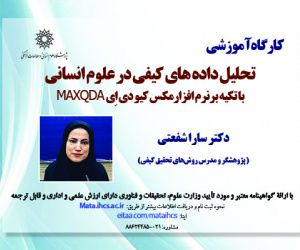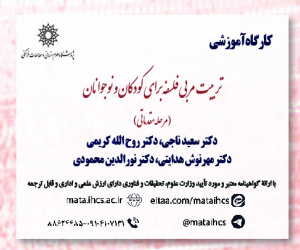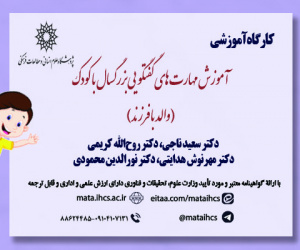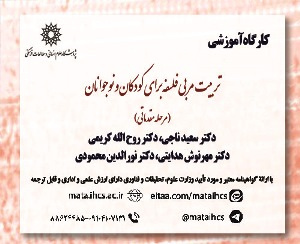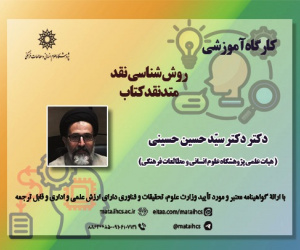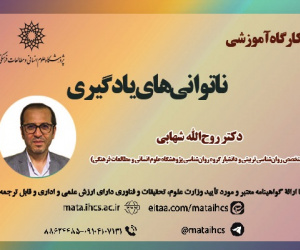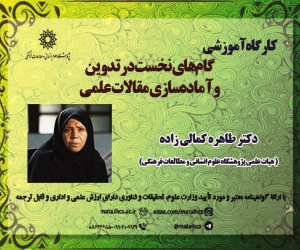ارائه الگوی فراترکیب فرصت ها و چالش های حکمرانی شبکه ای در عصر دیجیتال (مقاله علمی وزارت علوم)
درجه علمی: نشریه علمی (وزارت علوم)
آرشیو
چکیده
توسعه فناوری ها و شبکه های ارتباطی از یک سو و بروز مسائل پیچیده از سوی دیگر، حرکت به سمت حکمرانی شبکه ای را سرعت بخشیده و از این رو بررسی نقش شبکه ها به عنوان شیوه جدید حکمرانی در دو دهه اخیر مورد توجه کشورهای مختلف قرار گرفته است. این پژوهش قصد دارد الگویی از فرصت ها و چالش های مطرح شده در مهم ترین مقالات مرتبط را ارائه و مؤلفه های آن را در شرایط فعلی کشور وزن دهی و رتبه بندی کند. این پژوهش از نظر هدف، توسعه ای است و در دو فاز کیفی و کمی اجرا شده است. با روش فرا ترکیب بررسی و غربال گری مقالات از سال 2000 تا 2024 و انتخاب 21 مقاله منتخب انگلیسی و 5 مقاله فارسی، چهار مقوله اصلی: فرصت های اقتصادی، فرصت های اجتماعی، فرصت های ساختاری و چالش مشارکت و تعداد 11 کد اصلی و 35 کد فرعی دسته بندی شد. روایی با ابزار ارزیابی گروه کانونی و پایایی با محاسبه ضریب کاپا با مقدار 91/0تایید شد. کدها با روش آنتروپی شانون وزن دهی شد. نتایج نشان داد که مهم ترین فرصت های حکمرانی شبکه ای تحول دیجیتال شامل روابط بین سازمانی، اعتماد و شفافیت، بستر دموکراتیک، ساختار شبکه، فناوری و زیست بوم و مهم ترین چالش ها شامل فقدان آگاهی، انگیزه، دسترسی پذیری و مسئولیت پذیری هستند. همچنین در الگوی ارائه شده، وزن چالش احساس بدبینی و عدم اعتماد به شبکه و فرصت های حکمرانی پلتفرم های شبکه ای و روابط با مشتریان و توجه به جغرافیا در شرایط ایران برجسته تر است.A Meta-Synthesis Model of Opportunities and Challenges of Network Governance in the Digital Age
The development of technologies and communication networks, on one hand, and the emergence of complex issues, on the other, have accelerated the shift toward network governance. As a result, the role of networks as a new form of governance has attracted the attention of various countries in recent decades. This study aims to present a model of the opportunities and challenges discussed in the most important related articles and to weight and rank its components in the current context of the country. This research is developmental in terms of purpose and has been carried out in two phases: qualitative and quantitative. Using the meta-synthesis method, articles from 2000 to 2024 were reviewed and screened, and 21 selected English articles and 5 Persian articles were chosen. Four main categories were identified: economic opportunities, social opportunities, structural opportunities, and participation challenges, with 11 main codes and 35 sub-codes. Validity was confirmed through the focus group evaluation tool, and reliability was confirmed with a Kappa coefficient of 0.91. The codes were weighted using the Shannon entropy method. The results indicated that the most important opportunities in network governance, particularly digital transformation, include inter-organizational relations, trust and transparency, democratic platforms, network structure, technology, and ecosystem. The most significant challenges include lack of awareness, motivation, accessibility, and accountability. Additionally, in the presented model, the weight of the challenge of pessimism and distrust toward the network and the opportunities in platform governance networks and customer relations, as well as the consideration of geography in Iran's context, are more prominent.
